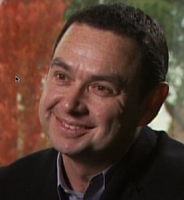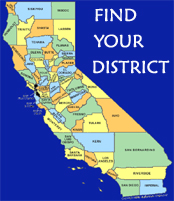Understanding the 2010 Elections: The Experts Weigh In
Two Capitol veterans offer their take on the election and what the future holds
 |
| A.G. Block |
CPF put those questions to two veterans of the Capitol wars: John Myers, Capitol Bureau Chief, KQED Radio and The California Report; and A.G. Block, Associate Director, University of California Center, Sacramento, former Editor, California Journal.
What was the message being sent by California voters in the 2010 Elections?
MYERS: If you look at the ballot measures relating to government and the budget, you could make an argument that a lot of those measures were a punishment of legislators. But I think the hard part is trying to figure out where people are in this economy. It's been said that people are angry, but my sense from talking to voters is that it's more like a malaise. They weren't necessarily angry at incumbents ... they're just depressed.
BLOCK: Voters want politicians to get on with it, and solve some problems, put aside all this partisan bickering and work together to create some solutions. If voters are trying to send a message, both here and elsewhere, it's deal with this, and do your job.
Voters say they don't want taxes and they don't want service cuts. Can elected officials reconcile those?
MYERS: We've seen this in so many polls these last few years, this incredible conflicting nature of what the voters tell us. They don't want to raise taxes, they want to cut spending, but they don't want to cut education, they don't want to cut health and human services, or higher education (about 80% of the total budget). One of the fascinating things to watch is can this governor engage with the public in a way they haven't been engaged with and force them to try to figure out, if you want this, what are you willing to pay?
Local election voters approved several measures rolling back retirement security. What was behind these votes?
MYERS: (The pension issue) has pierced the public's consciousness. It sometimes takes the public a long time to get these things, but I think there have been these horror stories (as in the city of Bell in Los Angeles County) on pensions and benefits. The public has dialed into that in some way, and I think Governor Brown and the Legislature are going to have to work on this issue, going to have to do more work on pension reform because otherwise you're going to get a ballot measure from someone on the other side that's going to push this issue much further.
BLOCK: If you've got a firefighter who retires at the age of 50 with a pretty nice pension, then goes out and gets another job, and five of his neighbors are out of work, when those five neighbors go in to vote, they're going to make sure that situation doesn't happen again. It's not just public safety workers. There is, I think, a general feeling in the country that everyone is not sharing equally in the fiscal problems that we have. If voters have the opportunity to sort of level the playing field - like pension reform in a given locality - they're going to take that opportunity.
How difficult is the task ahead for Governor Brown and the Legislature in balancing the state's budget?

John Myers
BLOCK: There is a $25 billion gap right now. There is predicted to be, by the Legislative Analyst and others who do forecasting, a $20 billion deficit that is structural, and is going to continue on ad infinitum into the future. You're not going to solve that unless you have an honest ... honest discussion about what you want the state to do ... what your priorities are. Budgets are not about dollars - they're about choices. So you have to have an honest discussion about what those choices are, and you have to then decide how much you're willing to spend.
What skills does Jerry Brown need in dealing with the crisis?
BLOCK: The one thing you can say about Jerry Brown historically throughout his political career is his inventiveness. He is full of ideas, and he is now full of ideas that have been informed by 45 years of public service. He has said at times that he is going to be a one-term governor, which gives him a lot of license to be as inventive and to take risks. We need politicians who are going to be risk takers and who will display political courage, and those are two qualities that he certainly has displayed in the past and would stand him in good stead now.
MYERS: The biggest criticism we heard when he was governor was that he was never here. He was somewhere else ... he was running for president ... he wasn't really dialed in to how government works. This seems to be a different Brown in that sense. He's still quirky, frenetic, all the terms that we use, but at least his approach to the job and his mission can be different, and I think that'll be really interesting to watch.
What are the prospects for getting California's economic and fiscal houses back in order?
BLOCK: (Policy makers) are going to have to do two things: you're going to have to figure out a better tax structure and raise some of those taxes, and you're going to have to make some pretty serious cuts. Until you're willing to do that, and have the courage to do that, it's not going to be done. There's not going to be any political will to do it. This pickle was there before the recession. The recession has certainly exacerbated it ... but until we're ready to have an honest discussion, we're not going to get very far out of this, because it is structural ... it happens every year. It's not just the economy.
MYERS: I think there's some optimism, but it's really guarded. There's a little bit of euphoria among Democrats in the Legislature now that they have a Democratic governor, but ... I don't think this governor is going to do every Democratic priority in the book. There's guarded optimism for incremental progress, but it's very incremental. Even if you look at the polls, the public doesn't expect tremendous progress in 2011. I think Brown's got a tremendously tough job ahead of him.

